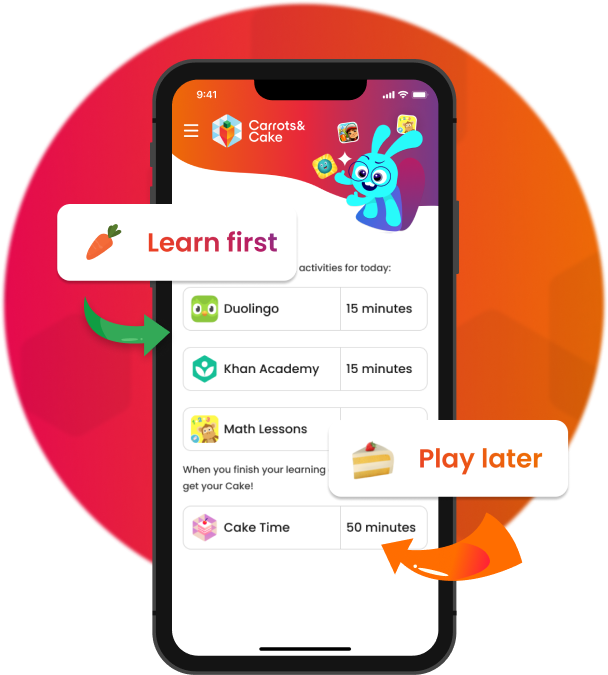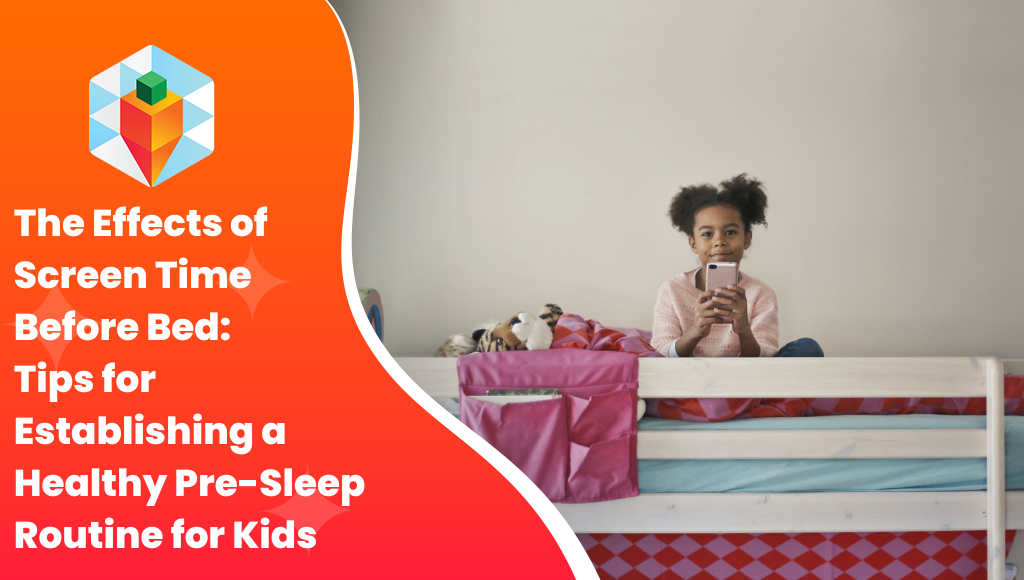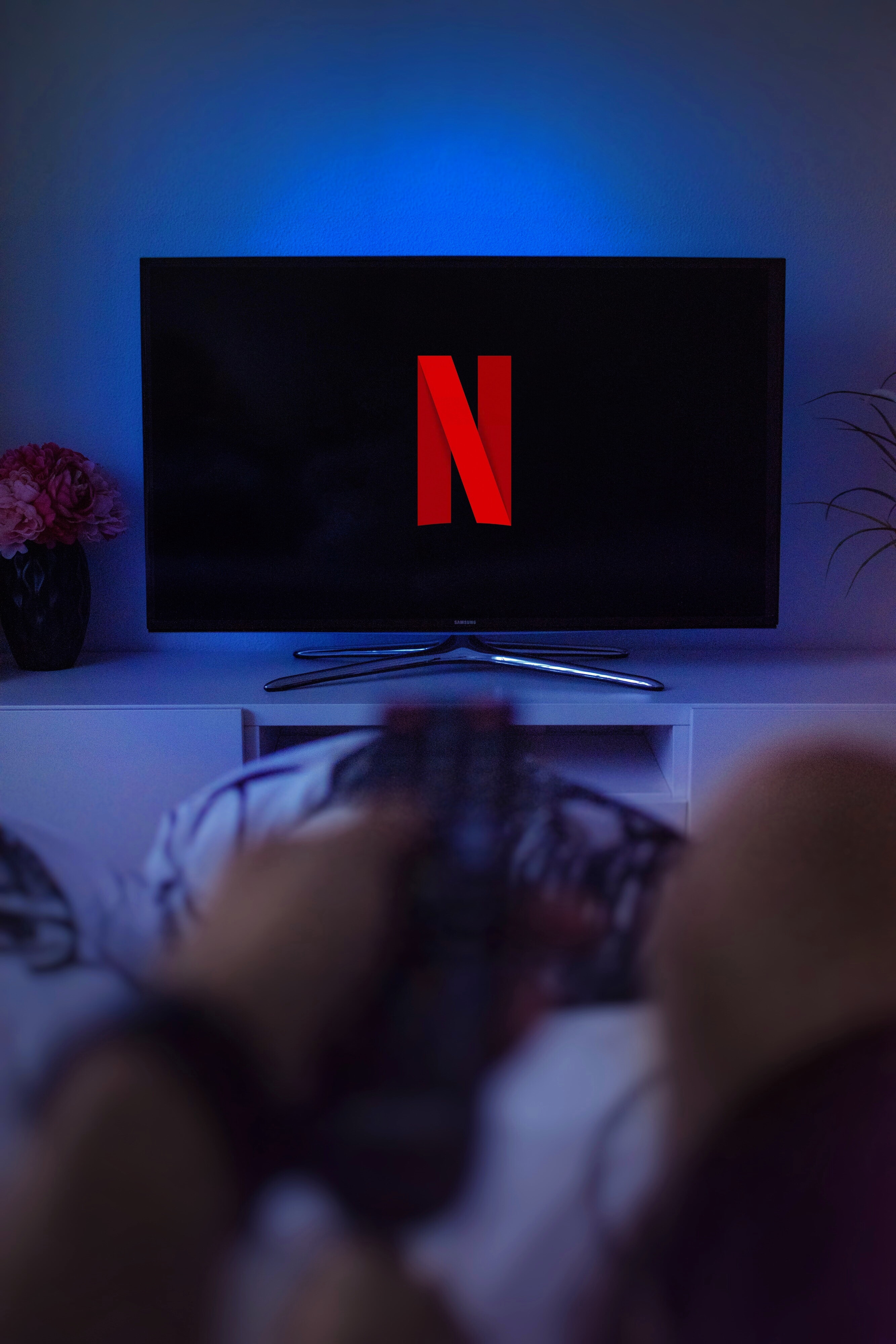


Families everywhere know the struggle of getting their children tucked in for the night. However, what many fail to recognize is that allowing screen time before bed can detrimentally influence sleep quality and overall health. From blue light exposure to mental stimulation, it's important for us as parents to understand how these factors affect our children when they use screens before going to sleep. In this article, we'll explore the effects of screen time before bed and discuss strategies for reducing its negative impacts while also highlighting some potential benefits.

Blue light emitted from screens can disrupt sleep patterns and cause difficulty falling asleep. The Blue light suppresses the production of melatonin, a hormone responsible for regulating the body’s natural sleep-wake cycle. By suppressing melatonin production, blue light exposure makes it harder to fall asleep and can lead to daytime fatigue. To reduce this effect, parents should limit screen time before bed or install filters that block out blue light from devices.
Mental stimulation caused by using screens before bed can also affect sleep quality in children. Playing video games or viewing TV can be energizing and thrilling, making it hard for kids to settle down and relax when they should rest. Parents should urge their youngsters to participate in soothing tasks, like reading books or solving puzzles, instead of playing video games or watching TV near bedtime.
The impact of screen time before bed on sleep quality is undeniable, as blue light exposure, mental stimulation, and disrupted circadian rhythms can all lead to poor sleeping habits. Therefore, it's important to understand the consequences of inadequate rest such as decreased academic performance, mood changes, and weakened immune function.
Sleep deficiency can result in negative effects on a kid's well-being, such as educational hindrance, altered temperaments, and impaired immune systems.
Poor quality sleep has been linked to lower grades in school due to the lack of focus and concentration needed to succeed academically. Sleep deprivation can also affect a child’s ability to remember what they learn in class or on tests. To ensure your child is getting enough restful sleep each night, establish a consistent bedtime routine that includes limiting screen time before bed and avoiding blue light from computer screens at least an hour before bedtime. Creating a regular sleep routine, such as limiting digital exposure before bed and avoiding blue light from devices in the hour leading up to slumber, can help reset one's internal clock for an easier time nodding off.
Not getting enough quality sleep can lead to irritability and difficulty controlling emotions throughout the day. It may even cause anxiety or depression if left unchecked over time. Kids need adequate restorative sleep every night in order for their brains and bodies to develop properly as well as maintain good mental health. Encourage family time without screens around dinner or after-dinner activities such as reading books together instead of watching television or using cell phones which will induce better sleeping habits while also creating memories with loved ones.
Establishing healthy sleeping patterns is key in helping kids experience fewer disruptions during the night, which helps keep their immune systems strong. Forming a regular bedtime regimen, including constraining display time prior to sleep and averting blue light from computer screens no less than an hour before hitting the hay, can help re-set your child's natural clock so they nod off without difficulty when it is their designated sleeping time. Encouraging family time without screens around dinner or after-dinner activities such as reading books together instead of watching television or using cell phones will induce better sleeping habits while also creating memories with loved ones.
Poor sleep can have a wide range of negative consequences, from decreased academic performance to weakened immune function. Fortunately, there are methods that parents can utilize to minimize screen time prior to sleep and assist their children in attaining the rest they need.
Establishing a consistent bedtime routine is an important part of reducing screen time before bed. This helps to create structure and stability for kids, which can help them wind down from the day’s activities and get ready for sleep. A good nighttime routine should include things like brushing teeth, changing into pajamas, reading a book or telling stories together, having quiet playtime with toys or puzzles, listening to calming music or taking a warm bath/shower.
Setting limits on device usage is essential when it comes to reducing screen time before bed. It’s important that parents are clear about expectations regarding how much time their child can spend on devices each day and what types of activities they should be engaging in during this allotted time period. Parents should also set boundaries around when devices need to be turned off at night so that children aren’t tempted to stay up late using them.
Installing parental controls and filters can help ensure that your child isn’t exposed to inappropriate content online or spending too much time browsing the internet instead of sleeping at night. Parents can utilize a range of resources, including software programs, browser extensions, mobile apps and hardware solutions to monitor their child's online activity as well as restrict access to certain websites or applications if necessary. These tools also enable parents to set restrictions around specific times of day when access is allowed so that kids don't stay up late surfing the web instead of getting enough restful sleep each night
By implementing these strategies, parents can help their children develop healthy digital habits that make screen time more beneficial and less addictive. Reducing screen time before bed also has many positive benefits, which we will discuss in the next section.
Reducing screen time before bed has many positive benefits for children. Improved sleep quality and duration is one of the most notable outcomes of limiting device usage in the evening hours. When kids are exposed to blue light from their devices, it can disrupt their circadian rhythms and prevent them from getting a good night's rest. By limiting device usage in the evening, parents can help ensure their children receive sufficient restorative sleep so they're energized and focused for the following day.
Another benefit of cutting back on device use in the evenings is increased focus and concentration during daytime hours. Without adequate sleep, kids often struggle to pay attention in school or at home while completing tasks like homework or chores. Limiting access to digital devices helps reduce mental stimulation which allows them to stay focused longer throughout the day without feeling overwhelmed by distractions.
Furthermore, lack of sufficient sleep can cause elevated stress levels which can manifest as physical symptoms such as headaches or stomachaches. Studies have shown that inadequate restorative sleep increases stress levels, which can lead to physical ailments such as headaches or stomachaches over time if left unchecked. Getting enough quality sleep each night helps keep stress levels low while simultaneously boosting overall immunity against illnesses like colds or flu viruses.
Reducing screen time before bed can help children and their parents achieve better sleep quality, improved focus during the day, and overall enhanced physical health. To further explore this topic of screen time before bed, there are several resources available to parents that provide additional information on this subject.
Parents in search of additional details on digital media use before bed can explore expert organizations like the American Academy of Pediatrics (AAP) and the National Sleep Foundation (NSF). These organizations provide evidence-based guidelines, resources, and advice for parents to help them better understand how to manage their children’s digital media use. Additionally, many of these organizations offer online support groups and forums where parents can connect with one another to discuss strategies for managing screen time before bed.
Online support networks are an excellent way for moms and dads to link up with other households who have similar worries about their kids' digital media usage. Many popular parenting websites like BabyCenter or The Bump offer online communities specifically designed for parents looking for tips on how to reduce screen time before bedtime. Forums such as these offer a chance for moms and dads to converse, query one another, gain knowledge from more seasoned members, and uncover approaches that have been successful in diverse scenarios.
Screen time before bed can have a negative effect on children's sleep. The body's internal clock, controlling rest-wake cycles and other bodily processes, can be disrupted by pre-bedtime screen time. Exposure to the blue glow of screens can impede melatonin secretion, making it more challenging to drift off and remain asleep during the night. Additionally, exposure to stimulating content such as games or videos can overstimulate the brain and make it difficult for kids to relax and unwind before bedtime.
Phones prior to bedtime may impair slumber quality. The blue light emitted from electronic devices' screens disrupts melatonin production, which can lead to disturbed circadian rhythms and decreased sleep quality. Moreover, research has demonstrated that exposure to digital media can cause heightened levels of stress hormones in both adults and kids, further compromising healthy sleeping habits. Finally, engaging with technology late at night can make it harder to wind down mentally when trying to fall asleep or stay asleep throughout the night.
It is advised that screens be kept away from for a minimum of two hours before bed. This gives the body time to wind down and prepare for sleep, as blue light from devices can interfere with melatonin production. Additionally, it helps children develop a healthy routine of winding down without relying on screens as a source of entertainment or stimulation before bedtime.
It is advised that youngsters should not engage in digital activities prior to bedtime. Blue light from digital devices can interfere with the body's sleep cycle, making it hard for children to fall and stay asleep. Additionally, the stimulating content of some games or apps may make it harder for them to relax and wind down before going to bed. To ensure a good night's rest, parents should limit screen time close to bedtime and encourage their kids to engage in calming activities like reading instead.
In summary, screens prior to bedtime can drastically influence a child's sleep quality and overall well-being. By limiting their exposure to blue light from screens, reducing mental stimulation close to bedtime, and maintaining consistent circadian rhythms, parents can help ensure that their kids get the rest they need for healthy development. With the right strategies in place, families can create an environment conducive to better sleep—and all of its associated benefits.
Take control of your family's digital habits and help kids develop healthy screen time before bed with Carrots&Cake. Our app is built by parents, developed with experts, and designed to make screen time more beneficial while reducing its addictive potential.






